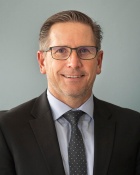William F. Schneider
Professor and Chair
University of Notre Dame
Department of Chemical and Biomolecular Engineering
+Amol Ajinkya Memorial Fund Lecture
Live broadcast available:
ZOOM Link
PW: UBCBE1
The Catalytic Science of Making Up and Breaking Up Dinitrogen
The catalytic chemistry of nitrogen is inextricably linked with mankind’s use of energy. Large- scale nitrogen fixation (N2 →NH3) revolutionized the production of fertilizer, enabled the population explosion of the 20th century, and now consumes several percent of the world’s energy annually production. NOx reduction (NOx→N2) is integral to reducing the adverse impacts of transportation on urban air quality and health. These and other technologies all depend at their heart on heterogeneous catalysis. In this presentation I will discuss the insights gained by applying molecular-level models and concepts to nitrogen catalytic chemistry. Examples will be drawn from our work on the selective catalytic reduction of NOx in Cu-exchanged zeolites, a problem that has led us to rethink the factors that govern reactivity in zeolites, from NO and NH3 oxidation, problems that have caused us to revisit how we model reactions at metal surfaces, and from N2 reduction, where we are exploring the potential to bypass the constraints presented by common catalysts by combining with a non-thermal plasma.
ZOOM Link
PW: UBCBE1
Bio
Bill Schneider’s expertise is in chemical applications of density functional theory (DFT) simulations. After receiving his Ph.D. in Inorganic Chemistry from the Ohio State University, he began his professional career in the Ford Motor Company Research Laboratory working on a variety of problems related to the environmental impacts of automobile emissions. At Ford he developed an interest in the catalytic chemistry of NOx for diesel emissions control, and he has published extensively on the chemistry and mechanisms of NOx decomposition, selective catalytic reduction, trapping, and oxidation catalysis. In 2004 he joined the Chemical and Biomolecular Engineering faculty at the University of Notre Dame as an Associate Professor. At Notre Dame he has continued his research into the theory and molecular simulation of heterogeneous catalysis, with particular emphasis on reaction environment effects on catalytic materials and their implications for mechanism and reactivity. He was named the H. Clifford and Evelyn A. Brosey Chair in 2016 and Dorini Family Chair and Chair of the Department of Chemical and Biomolecular Engineering in 2020. He has co-authored more than 185 papers and book chapters, is a Fellow of the American Association for the Advancement of Science, is an Executive Editor of The Journal of Physical Chemistry, the Chair of the Catalysis Science and Technology Division of the American Chemical Society, and was the 2018 recipient of the Giuseppe Parravano Award of the Michigan Catalysis Society.
Wednesday, September 21, 2022
- Time: 11:00 AM
- Location: 206 Furnas Hall
- Seminar Flyer

William F. Schneider
Professor and Chair
Department of Chemical and Biomolecular Engineering
University of Notre Dame